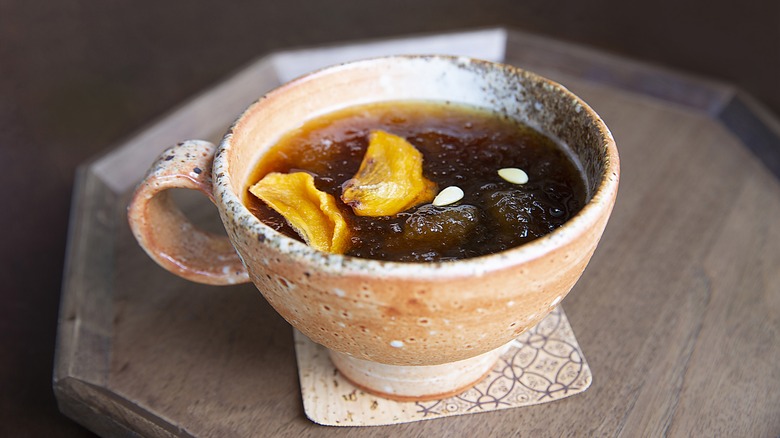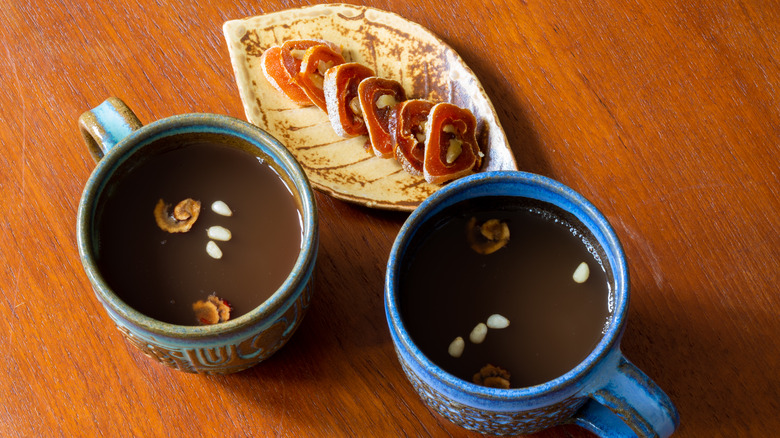Sujeonggwa Is The Korean Cinnamon Drink You'll Want To Sip In The Fall
With the return of cold weather comes a cornucopia of delicious foods and drinks. In Korea, the onset of fall heralds the return of sujeonggwa. Sujeonggwa is a sweet and spicy drink traditionally served cold and often treated as a dessert after a big meal. Its main ingredients are cinnamon and ginger, both of which are good at fighting off colds and helping with digestion, which fits perfectly into a hearty fall or winter meal.
Sujeonggwa is believed to have originated in the Joseon dynasty sometime in the 18th century when, because of the cost of such spices, it would have been enjoyed mainly in palatial settings. But, of course, today, these ingredients are much cheaper, and folks often have sujeonggwa as part of family gatherings or at Korean barbecue restaurants. The word sujeonggwa refers to the cinnamon ginger drink, but in the 18th century, several different types of festival punches were referred to as sujeonggwa. For example, one offshoot, baesuk, is a pear and ginger drink that was once classified as a type of sujeonggwa.
A delicious festival staple
Sujeonggwa is made similar to tea but with a few extra steps. The cinnamon and ginger are boiled first, and then a sweetener is added. These days that usually ends up being sugar, but honey or brown sugar is just as suited to it. After it's done boiling and the drink has cooled down whole or sliced dried persimmons are added. They impart flavor to the drink and also soak up the cinnamon and ginger spices. The persimmon gives this drink an interesting twist since you get to bite down on something. When served, pine nuts are often sprinkled on top as well.
Of course, each family is going to have their own sujeonggwa recipe with a little more cinnamon or a little less sugar. It's a relatively simple drink to make, which helps it keep its title as one of the most popular fall and winter festival drinks. While it's an aromatic treat, enjoyed anytime, it's especially associated with New Year's Eve, the Mid-Autumn Festival, and Chuseok (aka Korean Thanksgiving).

